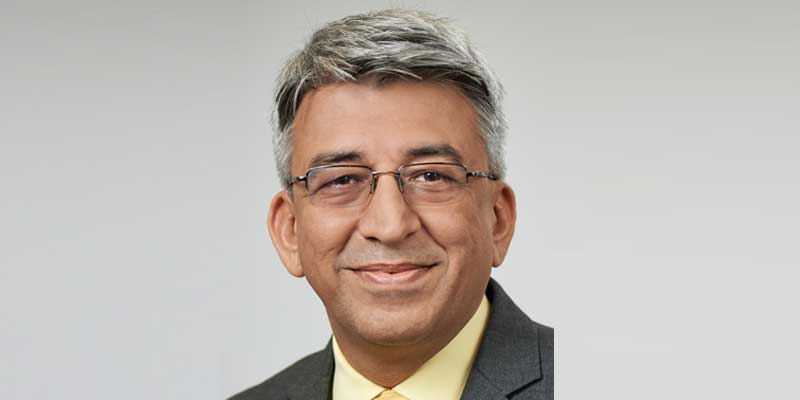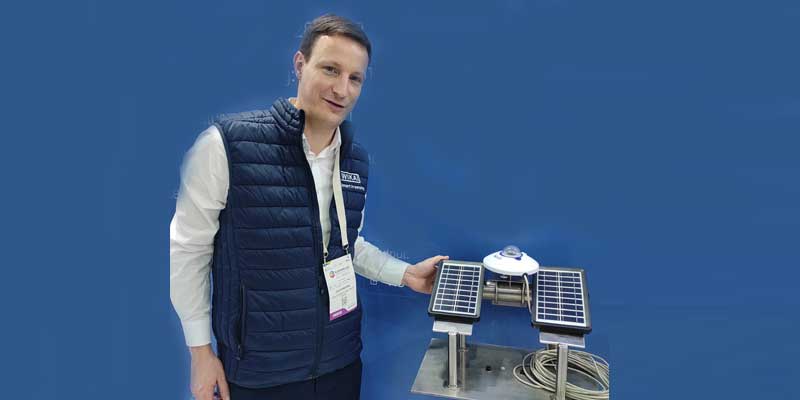Schedule a Call Back
Bilateral trade between India & Germany was € 23.5 bn in FY21–22
 Interviews
Interviews- Mar 21,23

Recently, Germany Chancellor, Olaf Scholz, was in India. How significant was his visit for trade relations between the two countries given the present global geo-political situation?
German Chancellor, Olaf Scholz’s stressed his personal involvement in order to boost the two-way economy via the free trade agreement proposed between India and EU. He talked about further augmenting Indo-German trade ties. The vision document unveiled reaffirmed enhanced collaborations in terms of technological innovations, along with the Sustainable Development Partnership (GSDP), encouraging positive and proactive roles of the governments, institutions, academia and industry on both sides.
Indo-German eco¬nomic interdependence has increased in recent times- over 1,600 German companies provided more than 400,000 jobs in India. At the same time, over 200 Indian companies had registered offices in Germany, investing more than EUR 6.5 billion in the country. The Indian market continues to show strong growth and offers significant prospects for cooperation with Germany, including in the areas of infrastructure, energy, and environmental and high technology.
As our Hon’ble Prime Minister rightly said, due to the Indian campaigns like ‘Make in India’, ‘AtmaNirbhar Bharat’, etc, a plethora of opportunities are opening up in almost every sector in the country and the interest shown by German companies in the same is an absolute encouragement. In a statement to media, Scholz highlighted the countries' common aims, such as fighting climate change, and the importance of cooperation between democracies.
Germany is one of India's most important trade partners. Which are some of the key areas for the two countries to work together to take trade partnership to the next level?
Germany is indeed India's most important trading partner with a total bilateral trade between the two countries standing at EUR 23.5 billion during the financial year (FY) 2021–22, while it was valued at EUR 20.57 billion in FY 2020–21. Sustainability, climate change and transition to a low-carbon economy are key areas of the India-Germany bilateral relations. Potential areas of developing trade relations furthermore would be vehicle manufacturing, electrical engineering and electronics and textiles to name a few.
India is talking about Atmanirbhar Bharat. What are the key challenges to achieve this goal? How can German technology companies help India to solve these challenges and support India’s growth story?
The Indian Government had announced a package of INR 20 lakh Crores (EUR 230.5 billion), under the Atmanirbhar Bharat Abhiyan or self-reliant India. However, there are some major challenges for the country in order to achieve said goal. There are issues related to the liquidity of the aforementioned INR 20 lakh crore package. The lockdown during the Covid 19 times has consequently reduced the gross demand giving impetus to the need of a fiscal stimulus, along with the lack of backward and forward linkages, the burgeoning fiscal deficit and difficulty mobilising the finances adding up to the same.
German Technology companies can definitely prove to be an aid in supporting India’s growth in this context – India cannot achieve self-reliance by lagging in the technology ladder; rather, it must become a leader technology which can be scalable and platforms with a wide ranging applicability, across manufacturing to services to delivery of public goods and such advanced technology could ensure easy access to these technologies even for the smaller players, through incentives and subsidies. There is also the cost angle that should not look at the industry in isolation bit consider the point of view of a wider economy.
What are the emerging trends that you witness in the Indian manufacturing industry?
The Indian government wants to increase manufacturing's share in GDP from 18 per cent at present to 25 per cent in 2030. India is focusing on new markets, new business models, opportunities and the potential offered by adopting a culture of innovation. The focus is on the trends surrounding Industry 4.0, Industrial Internet of Things (IIoT), digital business models, predictive maintenance, machine learning, connectivity, interoperability and artificial intelligence, augmented and virtual reality applications. IT and software engineering are key factors in production technology today, while data mining represents an opportunity for new business models. With the onset of the digital India concept, automation in India is accelerating. Human-robot collaboration in particular is in high demand. Cobots already account for 7.5 per cent of all installed industrial robots in India – and the trend is rising.
Given India’s commitment to growth and decarbonisation efforts, how can India-Germany trade potential be nurtured further and taken to the next level?
India is right on this threshold with its industrial investment plans and therefore has great opportunities to catapult its industry into a zero-carbon future right away. Sustainability is certainly one of the most pressing global challenges of our time. Accordingly, India has also presented a strategy for climate neutrality. If the rethinking of production technology is to be successful, sustainability must be taken into account early on in the planning of investments.
Germany, under an Indo-German partnership for green and sustainable development, has committed to providing additional development assistance of €10 billion till 2030 to support India’s green growth plans. This assistance will be provided to India under the Joint Declaration of Intent (JDI) on green and sustainable development partnership signed between both nations. India has aimed high, decarbonising 50 per cent of its energy by 2030. Innovative policies to avoid dependency on fossil fuels and ensure long-term sustainability are required. In addition to this, investment in R&D has to be scaled up. Domestic manufacturing also needs appropriate incentives to become Aatma Nirbhar Bharat. Energy is at the heart of economic development and perhaps no country is more challenged than India as it strives to create a better life for its entire population.
?
Related Stories

Futuristic developments in the manufacturing industry in India: R Jayaraman
Make in India, which kicked off when PM Modi took over, and which was an object of suspicion for some time, has now blossomed into a full blown, mini-industrial revolution, putting India firmly on t..
Read more
Wika will increase local production capacity in India: Stefan von Westberg
In this interview, Stefan von Westberg, Director Field Marketing EMEAI, WIKA Alexander Wiegand SE & Co. Kg, highlights trends in measurement technologies and importance of India for the group
Read more
India takes a leap in energy transition with innovations at Elecrama 2025
With over 1,100 exhibitors and presence of leading international players, Elecrama 2025 provided a vital platform to witness cutting-edge innovations in the energy sector. The event further reinforc..
Read moreRelated Products

Dna of All Information
Roto Leaner Technology Pvt Ltd manufactures a complete range of display solutions.

Standard Series Stations and Enclosures
Esbee
Industrial Combines/Esbee Electrotech LLP offers standard series stations and
enclosures.

Fire Alarm
Safe Zone is prominent traders and suppliers of the industry, offering a wide range of wireless fire alarm.
Read more












